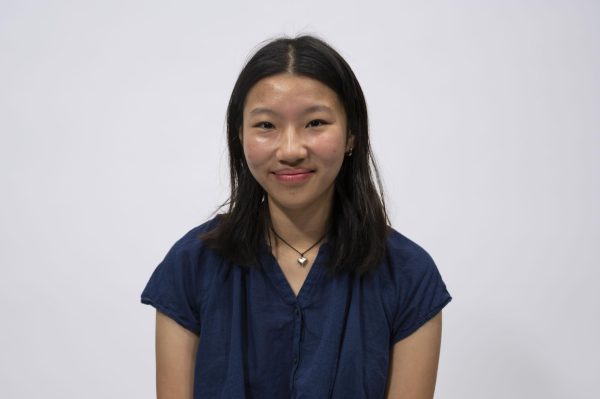Veteran journalists and Northeastern students alike worry about the future of journalism in the digital age. With emerging technology like artificial intelligence, or AI, and shifting patterns of news consumption, many believe the field of journalism has been forced to adapt — perhaps for the worse.
On Sept. 13, Northeastern hosted a political round table with several veteran journalists who discussed the intersection of media, politics and policy, touching on the topics of AI utilization in journalism and the impacts of business on the industry of journalism. The guest speakers included John Harwood, former White House correspondent at CNN; Erika Allen, head of audience strategy and growth at the Washington Post; and John Ellis, former head of the election unit at Fox News. These speakers were seated alongside Jonathan Kaufman, Northeastern’s journalism program director, and Jill Ambramson, the former executive editor of the New York Times.
As the round table discussion proposed, the digital age has led to a change in the way that many people consume news. Not only has there been a decline in the number of Americans that read physical newspapers, but there has been an increasing number of Americans, especially among the younger populations, that receive their news from sources like X, formerly known as Twitter, and YouTube.
“I don’t read a lot of news,” said Sean Balbale, a first-year engineering and computer science combined major. “For the most part, it’s tech news or whatever pops up in my Google feed.”
This trend has forced many major news organizations to adapt in order to keep their revenue streams from drying up.
“It’s really about sort of picking up on the trends,” Allen said at the roundtable. “[You] have to think about the things that people want to read and watch and listen to that can help to sustain a healthy news media organization.”
Allen said that the Washington Post considers the interests and desires of their audience when creating content. Other journalists on the panel agreed that this practice takes place at every major news organization.
“Fox News does not program the audience, the audience programs the network,” Ellis said. “And as long as the network is crosswise with the audience, then ratings will hold and advertising revenues will stay steady.”
Fox News prioritizes appealing to their audience because that is the best way for the company to maintain earnings, Ellis said.
News organizations must tow the line between informational and entertaining in order to stay afloat. But according to the veteran journalists on the panel, this was not always the case. Journalists did not always have to be mindful of profit margins, members of the roundtable said.
“I’m glad that I’m not starting my career in a place where so much of the media landscape has to worry constantly about the bottom line,” Harwood said. “It’s not a binary between public service and the bottom line, but there are trade-offs involved.”
Most Northeastern students appeared to agree that financial incentives of news organizations negatively interfere with journalistic integrity.
“I feel like news organizations that are super one side or the other, like Fox or CNN, are tailoring their news toward their viewers,” said Maddie Fiedler, a first-year biology and political science combined major. “They’re obviously more focused on getting more viewers and getting more money.”
Similarly, journalists and students both predict drastic impacts on the news media industry as a result of emerging AI technologies.
“Artificial intelligence is going to take us out,” Ellis said. “We probably have another five years. … Part of journalism’s crisis is that what it is doing is making AI better and stronger. They’re basically digging their own grave.”
While journalists fear for their jobs, students at Northeastern have mixed opinions on the possible consequences of AI.
“[AI] could lead to more false information,” Balbale said. “Or it could actually lead to the replacement of journalists as a whole.”
Balbale believes that employment of AI in news writing could intensify the spread of misinformation, but Fiedler has a different perspective.
“I think that [AI] could be more objective because it would be more straightforward in writing,” Fiedler said. “But it also takes out the human aspect, so I’m not really sure.”
To those like Fiedler a lack of human moderation in journalism sounds unnatural.
Journalism today faces many problems: a lack of public trust, misinformation and decreasing readership. Although there is no consensus on whether the use of AI in journalism will improve or exacerbate the current issues plaguing the industry, there appears to be a unanimous sentiment that the digital age has had drastic impacts on the field.
“We are now at an age when the people who know how to write code and the people who know how to decipher genetic code are going to be enormously powerful,” Ellis said. “More powerful than nation states and more powerful than the media.”











